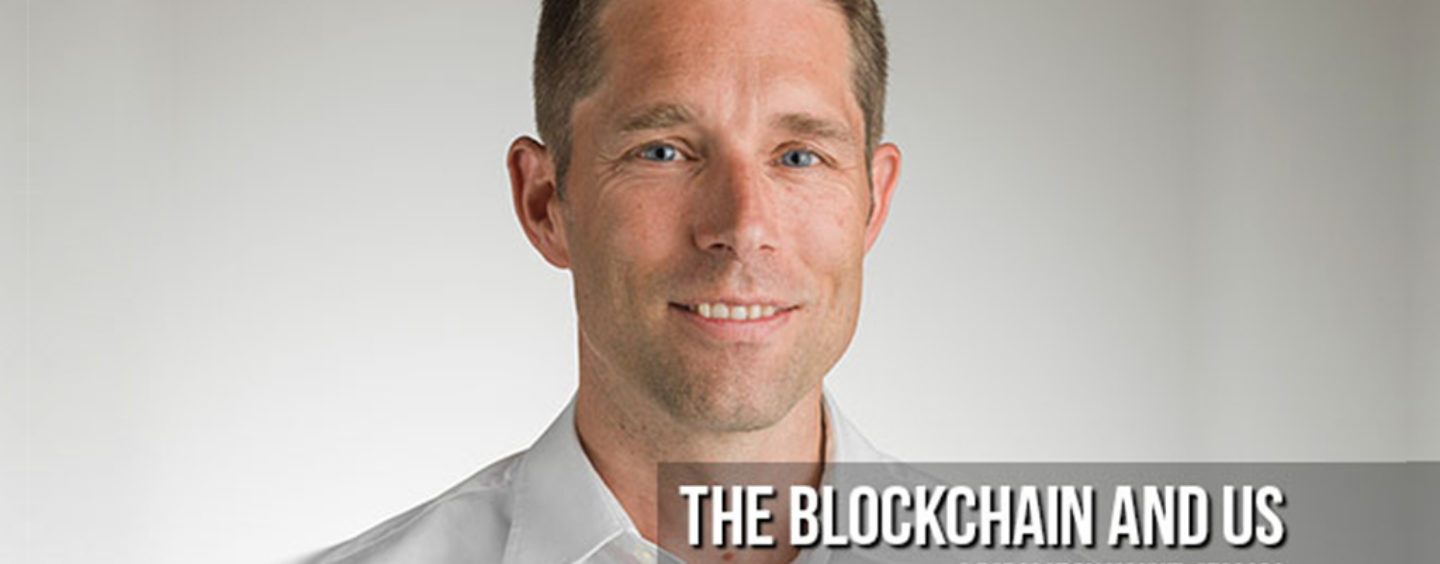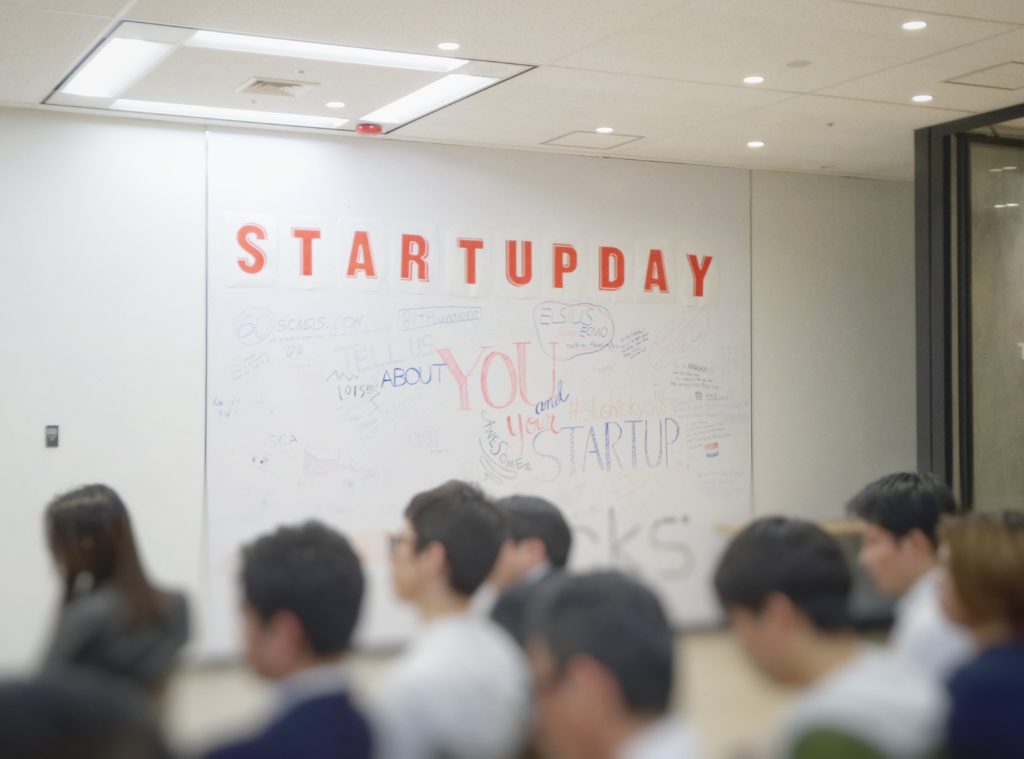
Podcast Review: How to Get A VC to Notice Your Blockchain Company
by Fintechnews Switzerland November 9, 2018In an episode of the Blockchain and Us podcast hosted by Manuel Stagars, Micheal Sidler enters the booth as the co-founder of Red Alpine Venture Partners in Zurich Switzerland, where he invests mainly in tech and biotech and is active in organisations supporting startups. Currently, Micheal is also investigating how blockchain can change the venture capitalist (VC) industry as well.
The podcast, titled ‘How The Blockchain Disrupts Venture Capital’ covers a variety of avenues from which this might happen, but of particular interest was a long back-and-forth between Manuel and Micheal about which blockchain companies pique VC attention, or at the very leaast the attention of Red Alpine.
Disclaimer: Some of the quotes have been shortened or edited to better suit the written format.
There Are VCs Looking into Blockchain
With a blockchain revolution on the horizon, Micheal admits that “as a VC, we have to figure out if this is something that can be of interest [when] analysing investment opportunities”. He points out that there are investors in their funds who are equally as interested with the blockchain space, yet have no clue how to go about investing in it.
“So far, we cannot invest in tokens out of our funds directly, [as] that would be a regulatory challenge. Nevertheless, I’m quite convinced that in the not too distant future, we will be able to do that and also be able to do larger investments.”
“We do investments out of a side pocket we have just to get our feet wet in that space.”
VCs that understand the value of blockchain and how that might innovate the future do exist, and those who don’t will either become the laggards who come into the realisation once the technology has hit its stride, or evolve to become something completely different.
Themes Traditional VCs Might Be Looking Into
“As a traditional VC, we believe that blockchain can change a lot of the existing processes in the IT landscape. This is not a very disruptive thing, it’s just making existing processes better and cheaper, but blockchain is definitely going to change that landscape, and that’s something we’re interested in.”
This, he thinks, still can be done through classic equity investments.
“Something that we believe is incredibly interesting for a VC is the tokenisation of securities, so if the shares of the company that we’ve invested in can be tokenised, that definitely, in certain cases, be very beneficial to enable trading or transaction in a very easy way. This would be interesting to change basically [how] equity investments are done. It’s still going to be an equity investment it’s just an equity token instead of a title that you hold somewhere in an account.”
And Here’s How to Appeal to Said VCs
“Much of it is quite the same,” said Micheal. “How we look at it really from the perspective of a VC, and that’s a bit different from the perspective from many typical investors or ICO investments have.”
It all boils down to the VC fundamentals: a blockchain company is still a tech startup. Therefore, many of the same principles apply.
“The biggest indicator of a future success of a company, concept or project is basically the quality of its founding team. 60% to 70% of future success is driven by that quality.”
“And if we analyse crypto-investment opportunities, yes it has a decentralised concept that has a foundation at its background. Nevertheless, there is a core team of people driving that, and here I believe it’s exactly the same. If you have a dedicated bunch of fantastic entrepreneurs, then the chance this succeeds is much higher than if you have an aggregated group of smart people who are not committed. In the end, it’s really important to understand who is driving it, and who is the team behind it.”
To Micheal, ” a good team is something you cannot figure out by going into a data room and looking at the CVs of these people. You have to work with them, you have to see them in action, you have to see them interact, you have to see them deal with their clients, competitors, regulators, customers. So basically you have to follow them for a while to feel the chemistry in the team and to understand if they’re entrepreneurs or not. That’s basically what we say is the quality.”
What’s of particular importance to Micheal when analysing investment opportunities is to see what he calls “a movie” of how the team or situation develops.
Yet there are also unique things to consider for specifically, the blockchain scene.
“There is a difference in the crypto-space, because there is a completely new paradigm, [where] ecosystem of a blockchain is going to be very important as well. You can have the smartest people with the smartest tokens and blockchains and concepts, [but] if you don’t have an ecosystem which is using it, then it’s not going to be worth much. Therefore, I guess that’s going to be an important point to analyse. And then, of course, the token mechanics aspect—this is something new for a VC typically that’s not a point in a typical equity investment.”
This Mentality Applies to Even New Companies With No Track Record
“It is not the case statistically that first-time entrepreneurs are more successful than serial entrepreneurs. If you look at some great examples in the tech world like Facebook, I think that’s exactly what we try to do.”
In this scenario, Micheal outlines their observations:
Many of these businesses will have a plan and a roadmap, so his VC would observe them for a couple of months, to see if they delievered on those plans, while also seeing if they have encountered any challenges that they have dealt with, as well as their next steps.
“[If] they come back and they tell us they achieved what they planned, that becomes ‘a movie’ which I referred to before. Then we start to believe that their future plans are achievable as well.”
“It’s very interesting or more interesting if things don’t go according to plan, to see how they deal with that.”
Do Blockchains Even Need Traditional VCs? What About ICOs?
“I’m quite sure this is a situation that is not going to be too sustainable,” said Micheal.
“Most of these ICOs happen with concepts, and everybody who has built up a platform company in a conventional way with equity knows how really hard it is to build a platform with demand and supply. It’s really hard.”
“Just having an idea to build a platform and getting 50 million from investors is an incredibly risky proposition because they have not delivered any proof so far that anything they planned is going to work or if they’re able to implement that.
The ICO frenzy will settle and we will [figure out] how the ICO is going to be a worthwhile tool in the future, not even necessarily as a competition to VCs. I believe VCs will invest in ICOs, and that’s happening already.”
“I think that the really smart way for a company is to get some equity from somewhere, build an MVP or something on a low level to demonstrate that what they’re planning can actually work instead of having a white paper without anything [backing it].”
Micheal thinks that if there is a scenario where a blockchain startup would like to get a VC, but the VC states that it’s too early for them to get in, then “I guess the VC is not competitive”.
“In the end, it’s not that different if you want to raise money, you need to be able to show something, substantiate your plan. An MVP, traction, and in order to do that, you need to get financed. Either you need money from your family, angel investors, you can raise that in the form of equity or you can raise it in the form of a private to token sale.”
The key here, is delivering a solid foundation for future investors to see.
For the full discussion about how blockchain disrupts venture capital with more discussion about how tokens could impact how VCs work, new exit strategies, or just more of Micheal’s opinions about getting your blockchain company VC-funded, you can listen here.









